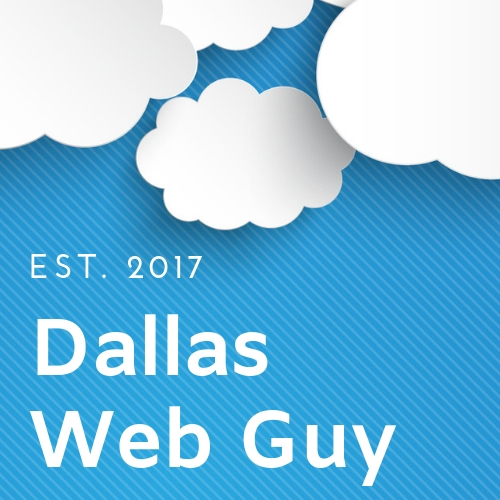Prepare You Swimming Pool for Fall

Water that is not properly treated and well balanced can lead to cloudy conditions such as this. Additionally, our water can enter states of Corrosive or Scale-Forming behaviors. All of this can be easily prevented by collaborating with Illiana Backyard as your Pool Partners this Winter season!
The Importance of Proper Water Balance
“Winter is coming!” says the mother who’s tired of long summer hours. We all encounter mixed emotions this time of year. Summer is over and school is back in session. Parents shift their focus from entertaining their children to keeping up with busy schedules. Agendas change and responsibilities shift. Oftentimes, the busy schedules lead to ignoring your swimming pool… which creates an ugly green giant of an eye sore.
If you’ve owned a swimming pool for over a year, then you’re familiar with the slow and steady change from crystal clear water to a green swamp. Oftentimes, home owners ignore their swimming pools due to several reasons, including:
- Restricted budgets – now that school is back in session, people have less money to spend maintaining their pool chemistry
- Busy schedules – people often forget to maintain their pool because they are just too darn busy
- It’s a long winter – people think Spring is a long way away… that being said, why not just let the pool go?
- It’s just water, what can it hurt? – you can always just fix the water in the Spring when your ready to swim. It’s not going to hurt anything, right? Wrong. We’ll fill you in on why.
Winter – The Silent Pool Killer
Calcium is a mineral that exists in all forms of water. In essence, Calcium is a rock that exists in a dissolved and invisible state in your swimming pool (if the water is balanced). The recommended Calcium level is swimming pools is between 100-400 ppm (parts per million). If your Calcium levels are within this range, it’s likely that your pool water is balanced and your water’s demand for Calcium is satisfied.
Now, that’s Calcium 101 for swimming pools. Lesson #2 entails the relationship between Calcium and Temperature. Because Calcium is a dissolved rock, it is more soluble (or solid) in cold water. Therefore, as temperatures cool down, your water balance may be at risk.
Although your Calcium levels may read between 100-400 ppm, you water may be nearing the Corrosive side of the Langelier Saturation Index (LSI) due to the decreased temperature.
What Is The LSI Index?
The name sounds nerdy, but understanding the LSI Index could save you thousands of dollars in swimming pool repairs. The basic principle of the LSI is this:
Our pool water requires a state of balance. The LSI Index provides us with a numerical calculation for the “balance” of our pool water. A Score too low (-.3 or lower) means your water is Corrosive (harmful to pool plaster & equipment). A Score too high (+.3 or higher) means your water is Scale-Forming (leaves thick scale on your pool walls & equipment).
Whew! That was a little in depth, but we still need to dive deeper to truly understand this concept. Below is a list of each chemical listed in the LSI Index; each one weighs a little different on the scale. For the sake of this article, we are paying attention to Calcium & Temperature.
Factors in the LSI Equation:
- pH
- Temperature
- Calcium Hardness (ppm)
- Alkalinity (ppm)
- Cyanuric Acid / Stabilizer (ppm)
- Total Dissolved Solids (ppm)
Temperatures
In essence, temperatures affect the speed of chemical reactions. Winter (and it’s cold waters) cause our water to be more corrosive.
If you’ve purchased a new shiny heater for you backyard swimming pool; you could be in danger of corrosive pool water.
Trust us, corrosive water is not a pretty picture for the heat-exchanger within your heater. Corrosive water eats away at the copper elements inside of the heat-exchanger. Consequently, copper molecules are then released and added to the chemistry of your pool water. In the right conditions, these copper molecules can fall out of suspension and stain your liner or pool plaster.
All of this can be prevented by keeping your water in balance. By hiring Illiana Backyard Fun to maintain your swimming pool during the cold months of the year, we can keep your water happily balanced and protect your swimming pool investment!

Your pool water should be healthy, clear and beautiful! If you’re curious about how to utilize the LSI Index to keep our pool water balanced and safe for your pool equipment & swimmers – contact Illiana Backyard Fun! We are here to educate our home owners and ensure that they have a happy and safe swimming pool to enjoy for years to come!
Professionally Maintaining your LSI
Although you can’t control the Temperature of your pool water, you can monitor and control your pH, Calcium, Alkalinity, Cyanuric Acid & TDS Levels.
WARNING: The LSI can be a tricky concept to understand and implement safely. We emphasize the importance of contacting Illiana Backyard Fun to help you utilize the LSI Index and identify the balance of your pool water.
Depending on where you fall on the LSI Index: -.3 to +.3 (or somewhere in between) – we can identify if your water is Corrosive or Scale-Forming.
We provide all of this background information for one purpose. By properly balancing your water now (often with the technique of Calcium levels) you can bring balance back to your pool water. This is one of the surest and safest ways to prepare your swimming pool for the tough winter months ahead.
It’s a little bit of homework, but trust us – it’s completely worth the effort! And it’s certainly a task that we recommend contacting your Pool Partners to assist you with!

We provide high-quality Pool Closing services. This entails properly balancing your pool water, adding Enzymes and Winterizing Chemicals to keep your water healthy all winter long. Give us a call today!
Not All Water is Created Equal
If you’re thinking that all swimming pool water requires the same LSI Number, think again. Each body of water finds it’s true balance through one way or another. Every swimming pool differs based upon the same variables that we mentioned above: pH, Temperature, Calcium, Alkalinity, Cyanuric Acid & TDS.
It’s possible for any swimming pool to have a hundred different combinations of these metrics and maintain a well-balanced water. Some of these metrics weigh heavier than others on the LSI Scale (i.e. Temperature & Calcium). Therefore, by ensuring that both of these metrics play along nicely together, we can prevent Corrosive or Scale-Forming water before the issue takes place.

Our Professional Winterizing Program
Whew! We’ve covered a lot of information in today’s article. We don’t discuss it to stress our customers out to or overwhelm them with pool ownership. Swimming pools are joyful areas of our home that bring years and years of family connection and outdoor fun. But there is certainly an element of swimming pool maintenance that we need to keep in mind.
By contacting Illiana Backyard Fun and asking for a professional assessment of your water balance, we can prevent a lot of problems before they occur. The trick is asking before the problem forms. If you’re curious about all of the information that we’ve covered in this article, we recommend contacting us and inviting us to your backyard.
Our goal is to educate our customers on the importance of the LSI Index and use the magic of it’s formula to keep our pool water healthy and balanced.
Check Out Our Informative Articles!
- Fiberglass Pool Installation – Pouring a Concrete Deck
- Pergolas
- Backyard Pools & Grills – Cooking Up Some Summer Fun!
- The Southport 21′ Round Above Ground Pool – New Installation
- Fiberglass Pool Installation – Running Our Plumbing Lines
- Installing a New Automated Pool Cover
- Pool Equipment Repairs & Chemical Maintenance

Article written by Dallas Web Guy LLC – a local Dallas/Fort Worth business formed in September 2017. Our goal is help “Small Businesses Grow” and we do not deviate from this path!
